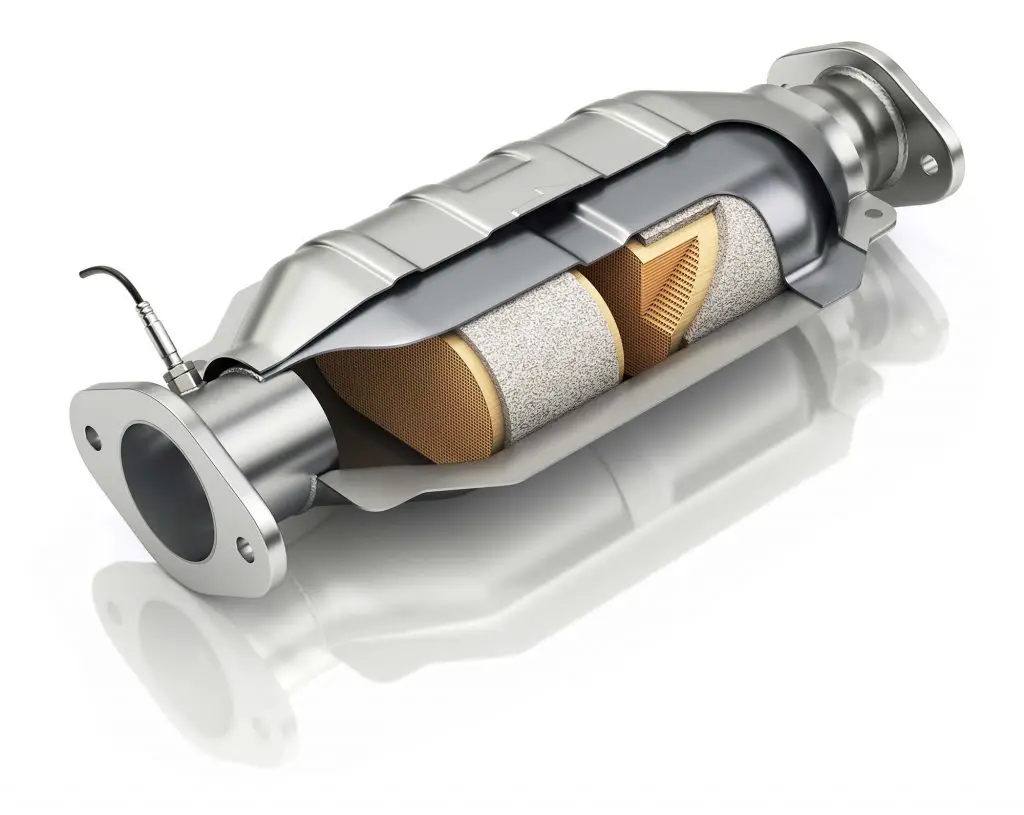Did you know that you can tell a lot by how your car smells? For example, a sweet smell lingering in your car could be a sign there is a coolant leak. A vinegar odor could be a sign of mold and mildew growth in your air conditioning system. A burning smell could indicate worn-out brake pads or engine hoses or belts that are loose or about to break. But what does it mean if your car smells like rotten eggs?
On the one hand, it might mean that you left last week’s egg salad in the back seat. On the other hand, a lingering sulfurous, rotten egg smell may indicate a problem with your car.
Among the most common concerns could be with the catalytic converter, fuel pressure sensor, fuel filter, transmission fluid, or leaking battery acid. Let’s take a deeper look at the most common causes of a rotten egg smell in your vehicle because this is an odor that you should not ignore.
What causes a rotten egg smell in my car?
If you smell a rotten egg odor in your car, chances are that the smell is hydrogen sulfide, a chemical found in your car’s fuel that is described as smelling like rotten eggs.
This bad smell has various potential causes, but the most common culprit is a mechanical issue with your catalytic converter.
1. Broken Catalytic Converter
The catalytic converter plays in vital role in the function of your vehicle. It prevents toxic gases associated with your emissions system, such as carbon monoxide and nitric oxide, from entering the cabin of your car.
The catalytic converter converts and neutralizes these toxic gases into safe gases that are better for the environment. Specifically, the catalytic converter functions to convert hydrogen sulfide in your engine’s exhaust into an harmless and odorless sulfur dioxide.

If you smell a persistent sulfur smell, this is a sign that the catalytic converter is malfunctioning, and something is wrong with your emissions system. Driving with a damaged catalytic converter will reduce performance of your vehicle, increase air pollution, and result in your vehicle failing emissions tests.
In this case, the safest action to take would be to immediately bring your vehicle to a trusted mechanic to replace the catalytic convertor. This is especially important in higher temperatures, when your catalytic convertor can result in engine combustion and, subsequently, cause a fire in your engine.
2. Bad Fuel Pressure Sensor
While a malfunctioning catalytic converter may be the most common cause of a rotten egg smell, another potential source may be a failing fuel pressure sensor.
A fuel pressure sensor regulates the use and flow of fuel by communicating how much fuel needs to be injected into the combustion chamber.
When it fails to regulate, the car can inject an excessive amount of fuel and the catalytic converter can be clogged with an excess amount of oil and impair its function. This overwhelms the emissions system, prevents the conversion of the exhaust byproducts, and results in the same sulfurous, rotten egg smell.
A solution to this will require the replacement of the fuel pressure sensor.
3. Worn-out or Dirty Fuel Filter
If the sensor is functioning properly, then the issue may be with a dirty fuel filter. A fuel filter is designed to prevent dirt and other particles present in the fuel from entering the fuel system. But a clogged fuel filter will mean an influx of sulfur deposits will get burned up in the converter, leading to similar issues as a failing fuel pressure sensor.
The clogged filter will prevent the conversion of exhaust byproducts, create buildup, and produce the same unpleasant smells. It is also a major potential fire hazard. To fix this, you will have to replace the fuel filter.
4. Old transmission fluid
Additionally, if the catalytic convertor, fuel pressure sensor, and fuel filter are functioning properly, the sulfurous, rotten egg smell may be a result of old transmission fluid.
Transmission fluid lubricates the gear systems of your car. If you have not flushed your transmission fluid in a while, it may start to leak into other areas of your car and produce a rotten egg odor once it starts to deteriorate.
To solve this issue, the transmission fluid should be inspected and replaced by a technician as often as the vehicle manufacturer requires.
5. Leaking Car Battery
If you pop the hood of your car and are overcome with the smell of sulfur, this can be an indication that battery acid is leaking. A battery leak can be caused if the battery has been overcharged, frozen, if there has been a mechanical defect, or because of other internal electrical issues.
Regardless, a dying lead battery produces hydrogen sulfide gas, resulting in the lingering rotten egg smell. It will be important to have this issue addressed quickly by an expert because leaking battery acid will eat through the metal and plastic components of your car and damage your engine. Furthermore, sulfuric acid in car batteries can result in dangerous chemical and thermal burns to your skin upon contact.
Get It Checked ASAP!
Your sense of smell is an important one. In the context of car ownership, it is an important sense that can alert you to many dangerous malfunctions and breaks in your car that you should not ignore.
When you smell a lingering unpleasant, sulfurous, rotten egg smell, this may indicate issues with the catalytic converter, fuel pressure sensor, fuel filter, transmission fluid, or leaking battery acid. These issues will vary in severity, time to repair, and cost.
Regardless of the origin of the odor, exhaust fumes in your cabin can indicate a major issue with your car and, even more importantly, can have a negative impact on your health. It is dangerous to breathe in and come into contact with hydrogen sulfide.
Hydrogen sulfide can result in skin irritation, dizziness, difficulty breathing, and other symptoms that irreparably affect your central nervous and respiratory systems.
For peace of mind regarding your car’s performance and your health, take your vehicle to a car repair shop to accurately diagnose and solve the issue today.
